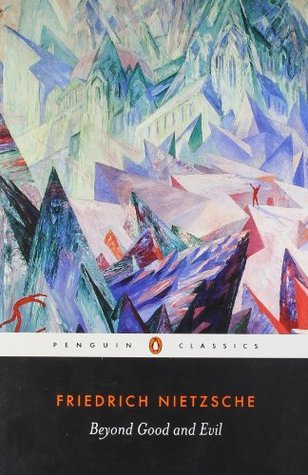Friedrich Nietzsche, a 19th-century German philosopher, is known for his influential and provocative ideas that continue to shape modern thought. His works are a treasure trove of wisdom, offering insights into the human condition, morality, and the nature of existence.
If you’re new to Nietzsche’s philosophy, it can be overwhelming to navigate his extensive body of work. To help you get started, we’ve compiled a list of the best 9 Nietzsche books to read, covering his most important and accessible works.
Contents
- Beyond Good and Evil (1886)
- The Birth of Tragedy
- Thus Spoke Zarathustra
- “The Genealogy of Morals” (1887)
- Twilight of the Idols
- The Case of Wagner (1888)
- Ecce Homo” (1888)
- The Gay Science
- On the Genealogy of Morals
- Questions
- What is the best Nietzsche book to start with?
- What is the most influential work of Nietzsche?
- What is the most accessible work of Nietzsche?
- What is the most challenging work of Nietzsche?
- Conclusion
- Read More:
Beyond Good and Evil (1886)
“Beyond Good and Evil” is one of Nietzsche’s most famous and influential works. This Nietzsche book is a collection of aphorisms, which are short, pithy statements that offer profound insights into the human condition. In this work, Nietzsche challenges traditional morality and the notion of a fixed, objective truth.
He argues that morality is a product of human culture and that it’s time to move beyond the constraints of traditional morality. This book is a great introduction to Nietzsche’s ideas on morality, the will to power, and the death of God.
The Birth of Tragedy
“The Birth of Tragedy” is Nietzsche’s first major work, written when he was just 24 years old. In this Nietzsche book, he explores the relationship between art, culture, and the human condition. Nietzsche argues that tragedy is a fundamental aspect of human existence and that it’s essential for the development of culture.
He also introduces his concept of the “Dionysian,” which represents the primal, instinctual forces that drive human creativity and artistic expression.
Thus Spoke Zarathustra
“Thus Spoke Zarathustra” is a philosophical novel that follows the story of a prophet-like figure named Zarathustra, who returns to the world after a 10-year absence to share his wisdom with humanity. The Nietzsche book is a collection of aphorisms, parables, and poetic passages that explore themes such as the will to power, the death of God, and the Übermensch (or “Superman”).
This work is a great introduction to Nietzsche’s ideas on the future of humanity and the role of the individual in shaping that future.
“The Genealogy of Morals” (1887)
“The Genealogy of Morals” is a critical examination of traditional morality and the origins of moral values. Nietzsche argues that moral values are not based on objective truth but are instead the result of a complex process of cultural and historical development.
He also introduces his concept of the “will to power,” which he sees as the fundamental driving force behind human behavior. This book is a great introduction to Nietzsche’s ideas on morality, ethics, and the nature of human behavior.
Twilight of the Idols
“Twilight of the Idols” is a collection of aphorisms that offer a critique of traditional philosophy and culture. Nietzsche argues that traditional values and institutions are crumbling and that it’s time to create new values and a new culture.
He also introduces his concept of the “Übermensch,” which represents the ideal of human perfection. This Nietzsche book is a great introduction to Nietzsche’s ideas on the future of humanity and the role of the individual in shaping that future.
The Case of Wagner (1888)
“The Case of Wagner” is a collection of essays that offer a critique of Richard Wagner’s music and the cultural and philosophical implications of his work. Nietzsche argues that Wagner’s music represents a form of artistic expression that is both beautiful and decadent.
He also introduces his concept of the “Dionysian,” which represents the primal, instinctual forces that drive human creativity and artistic expression.
Ecce Homo” (1888)
“Ecce Homo” is Nietzsche’s autobiography, which he wrote in the final months of his life. The book is a collection of aphorisms, parables, and poetic passages that offer insights into Nietzsche’s life, his philosophy, and his artistic vision.
This work is a great introduction to Nietzsche’s ideas on the nature of human existence and the role of the individual in shaping that existence.
The Gay Science
“The Gay Science” is a collection of aphorisms that offer insights into the human condition, morality, and the nature of existence. Nietzsche argues that life is a form of art and that it’s essential to approach it with a sense of joy and creativity.
He also introduces his concept of the “eternal recurrence,” which represents the idea that all events in the universe will recur infinitely. This book is a great introduction to Nietzsche’s ideas on the nature of time and the human condition.
On the Genealogy of Morals
“On the Genealogy of Morals” is a companion piece to “The Genealogy of Morals” and offers a more detailed examination of the origins of moral values. Nietzsche argues that moral values are not based on objective truth but are instead the result of a complex process of cultural and historical development.
He also introduces his concept of the “will to power,” which he sees as the fundamental driving force behind human behavior.
Questions
What is the best Nietzsche book to start with?
“Beyond Good and Evil” is a great introduction to Nietzsche’s ideas on morality, the will to power, and the death of God.
What is the most influential work of Nietzsche?
“Thus Spoke Zarathustra” is considered one of Nietzsche’s most influential works and offers insights into his ideas on the will to power, the death of God, and the Übermensch.
What is the most accessible work of Nietzsche?
“The Gay Science” is a collection of aphorisms that offer insights into the human condition, morality, and the nature of existence. It’s a great introduction to Nietzsche’s ideas and is relatively easy to understand.
What is the most challenging work of Nietzsche?
“The Genealogy of Morals” is a complex and challenging work that offers a detailed examination of the origins of moral values. It’s a great introduction to Nietzsche’s ideas on morality, ethics, and the nature of human behavior, but it requires a strong background in philosophy and a willingness to engage with complex ideas.
Conclusion
Friedrich Nietzsche is a complex and influential philosopher who has had a profound impact on modern thought. His works offer insights into the human condition, morality, and the nature of existence, and are essential reading for anyone interested in philosophy, literature, or the arts.
The 9 Nietzsche books listed above are a great introduction to Nietzsche’s ideas and offer a comprehensive overview of his philosophy. Whether you’re a seasoned philosopher or a newcomer to Nietzsche’s work, these books are sure to inspire and challenge you.
Read More:
- The Real Reason Invoices Go Unpaid — And How Collection Automation Can Fix It
- Best Places to Buy Diamonds and Engagement Rings Online
- Building Focus and Strategy Through Interactive Digital Experiences
- How Students’ Reading Interests Influence Their Motivation and Performance in Writing Assignments
- The Damages Resulting from the Use of Suboxone

Chandler is an avid automobile enthusiast who is passionate about all things on wheels. From the latest car models to classic vintage rides, I love exploring the automotive world’s intricate details and engineering marvels. With years of experience in test-driving, reviewing, and analyzing cars, I provide readers with comprehensive insights and honest opinions.



























